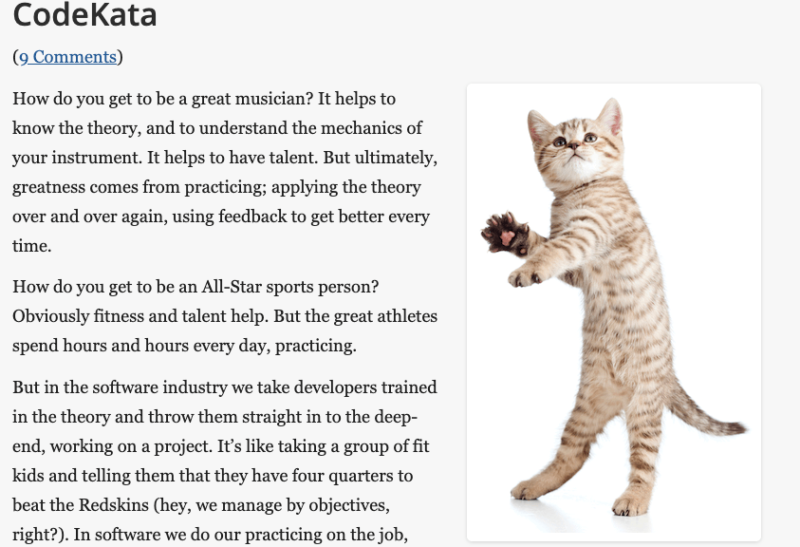28 April 2023
Frontend interview questions – how to impress in 2023?

As the high demand for frontend development continues, technologies come and go and requirements change, the typical frontend interview evolves. Depending on a company, they may also put more focus on a specific framework, UX/design prowess and more. In this article, we’re going to give you a possibly most accurate description of a frontend interview in 2023, complete with frontend interview questions.
We’re continuing our series about interview questions. We have already covered the PHP interview, as well as an interview with a focus on microservices. This time, it’s all about frontend development.
According to the Stack Overflow Survey 2022 report, as many as 25.96% of all programmers on Stack Overflow consider themselves frontend developers. That’s a drop from the previous years (which can be explained by an increase in the number of self-identified full-stack developers) but it’s still quite a lot. Considering the fact that frontend development is an essential and obligatory part of any web-based and many mobile-based projects, it’s hardly surprising that there are a lot of them.
Frontend developers and the companies that need their skills are in a constant process of matching, with developers of different quality and specializations joining more or less ambitious endeavors. Want to be on the “more” side? Then, make sure to nail your frontend interview!
At The Software House, frontend development is one of the most important departments. We asked TSH’s Head of Frontend Andrzej Wysoczański to provide us with an accurate description of how a frontend interview looks in 2023. He can take it from here 🙂

Frontend developer interview – how to approach it in 2023?
The frontend developer interview is not just about answering questions. Oftentimes, you will be asked to speak freely about yourself. It’s a great way to test the soft skills of a developer. How to tackle it?
Think back to the projects you took part in. What technologies did you use? What exactly did you do? What made you proudest? What worked really well and what did not? What else was in it that you would want to talk about? Also, if possible, boast a bit about your private projects – what you do and enjoy doing, what kind of interesting challenges you encountered in the process and how you overcame them.
If you state in your resume/website that you are familiar with a given framework, be sure to go over its documentation. It’s full of simple examples that many recruiters like to use. Browse online listicles to get a feel of the common interview questions that are asked during recruitment. But do not memorize the answers! Prepare to answer with your own words, possibly giving examples from your own experience. You don’t have to recite it – no software company is looking for a walking Wikipedia.
Have flashcards of common buzzwords or confusing acronyms if you have a tendency to blank out when the interviewer goes through the technical interview questions: external HTTP requests, REST web services, CSS box model, semantic HTML – even if you haven’t worked with certain elements you should know what they are.
If you took a break from programming and are now trying to get back on track, improve your confidence by tackling some simple JavaScript codekatas, or develop a simple project of your own in order to up your JavaScript code game.

Frontend development job trends in 2023
An interesting trend, which emerged in the last months, is a stronger push for more experienced frontend developers. It may be the result of the latest economic troubles in the world, which made businesses less patient and more focused on short-term wins. However, it doesn’t mean that inexperienced frontend developers should feel discouraged.
Do projects of your own, accept internships, and polish your skills in non-commercial projects. You should eventually land a job that will allow you to gain the experience you need to find the position you dreamed about.
📚 The State of Frontend 2022 is out and ready for you!
Built on surveys by 3700 frontend developers from 125 countries, enriched with 19 expert commentaries, divided into 13 topical sections. State of Frontend is the most up-to-date information source.
Check where do you (and your organization) fit within the modern frontend landscape.
UX vs programming – how to keep the right balance in the skillset?
Aside from hard skills such as JavaScript/TypeScript, proficiency in various libraries and frameworks, etc., it’s getting increasingly important for a frontend developer candidate to master soft skills.
As a frontend specialist, you should have more than basic knowledge of who you develop for. You should have a feel for what works and what doesn’t when it comes to UX on an app or web page. After all, end-users of a web page don’t care about the code quality. It is the usability they are after. It’s equally important for mobile devices. You need to ask yourself if you would like to use an app like this and understand what the answer to that means.
Our frontend/react developers are working with and writing about the latest trends in development. Check out their insights!
💼 Careers at The Software House: are you interested in working for us as a frontend developer? Check out our current job openings.
Frontend developer interview – key areas
These are definitely the most important areas you should expect during a frontend interview in 2023:
- Very good understanding of JavaScript – that one is quite obvious. Aside from the language itself, you should be familiar with static code analysis tools.
- Good knowledge of top frameworks/libraries (depending on specific needs of the company you’re applying for): React, Angular, Vue.js etc.
- HTML5 and CSS – writing semantically correct HTML, pixel perfect implementations of designs into CSS, attention to detail, responsive web design.
- English – you should be able to communicate fluently and make your points clearly.
- Browsers – practical knowledge of browsers, how they work and how to debug your code in the browser.
- Practical experience working with APIs (Rest APIs and/or GraphQL).
- Experience in working with GIT repos.
- Experience in writing tests.
Let’s get to the specific questions.
Frontend interview questions
At The Software House, we like presenting the candidates with specific use cases and ask them about possible solutions to various practical problems. Our web development services depend on having developers that can tackle such issues.
But there is no shortage of theoretical questions as well. Typical frontend interview questions in 2023 include:
- Do you use CSS preprocessors? What are their pros and cons?
- Explain the difference between Flexbox and CSS Grid. When would you use any of these? What are their strengths and weaknesses?
- What is and why to use the Block Element Modifier (BEM) convention?
- What is load balancing and how it works?
- How would you address browser-specific rendering problems?
- What are your favourite current trends in frontend development?
- What is Storybook and what are its advantages when it comes to consistent and scalable frontend development and UX?
- Would you be able to explain what you do professionally do a layman? How would you go about it? (a question like that might make it clearer to the interviewer if the candidate has the appropriate soft skills and is able to speak to non-technical individuals in a way that doesn’t rely on technical jargon. After all, a true specialist is able to explain what they do and why with the simplest of words).
- What is a user centered design?
- HTML: can you explain the role of HTML tag, HTML elements, and HTML document?
- JavaScript: Explain how you can use JavaScript functions such as forEach, Map, or Reduce.
- JavaScript: Common questions are often related to ECMAScript 6+, including arrow functions and how they work, difference between var, let, const etc.
- JavaScript: Explain the difference between Async/Await and Promises.
- React: What is and how you can take advantage of PureComponent?
- React: What are higher-order components (HOC) and how you can use them in practice.
- React: What do you think about the latest updates of React – go over the benefits and uses of React Hooks.
Is there some way to master the frontend interview more quickly?
Frontend interview tips
It’s not all about your skills. Your success during the interview will also depend on your planning, state of mind and overall impression you can make. Try to follow these tips to improve your chances:
- Get a full night’s sleep before the interview. You will be sharper and more confident.
- Get there on time – rushing to your interview will only make you more nervous unnecessarily! If you drive by car, make sure you know where you can park.
- Since you’re planning to start a new job, be sure to know WHY exactly you want to work there. Don’t be surprised to be asked about it.
- What are your expectations for that new work? Be ready to give a good answer to that question as well!
- Come up with questions of your own. What you’ll be doing, what the goals of the company are and more. Write them down before the interview.
- Don’t try too hard to have a perfect answer to every question – nobody has to be good at everything!
Let’s sum it all up.
Frontend interview questions – summary
What do you think about the questions and advice? Are you now ready to try your luck and work with other front end developers?
Remember:
- Make sure to prepare yourself extremely well when it comes to technologies that are your strongest suit. You don’t have to be good at everything there is to know in front end development though. But the interview must be able to tell that you understand the modern development process.
- During a typical interview, you will be asked to solve some practical cases regarding web pages and web applications. Learning definitions by heart is not a good idea. Get familiar with frontend interview questions, but think of them as nothing more than a guideline. Frontend interview questions and answers are ultimately a conversation, not an exam.
- Take the initiative and show the recruiters your own web application and other projects of your own, ask them your own questions about the company and your role too.
And that’s the gist of it. Now try to relax a bit. Even if your next interview doesn’t work out, there will be another! So approach the next challenge calmly. Be ready to show your best. Good luck!


